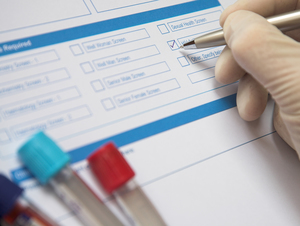Others have said that calcium levels do not change with age. Why do you say that they do?


It is not controversial to state that calcium levels vary with age - this has been known for a long time. Studies have shown for decades that healthy children have calcium levels up into the high 10s (mg/dl) range. You are not born with a calcium level that persists for a lifetime. This is not in debate.
Over time, the calcium level drops as children become young adults. There is no magic age at which your childhood calcium drops into the adult calcium - it happens gradually. Here is the part that is not as well documented, and has not been formally published: The calcium of young adults is still somewhat higher than it will be in old age. How do I know this? From reviewing thousands and thousands of patients’ labs, and then operating on them. If I have an 80-year-old with a calcium of 10.2 mg/dl and a PTH of 50 pg/ml, I know with near certainty that I will find a parathyroid tumor. If I have a 30-year-old with the same labs, I know with near certainty that I will find normal parathyroid glands if I operate. I know this because I have encountered all of these scenarios and more. For someone who has not reviewed as many patient labs as I have, it would be harder to see the pattern, because it is somewhat subtle. The levels drop gradually, and there are no sheer cutoff points. I know from experience to adjust my interpretation of calcium levels based on age. For example, a calcium level of 10.1 in an 80-year-old is very suggestive of parathyroid disease, in a 50-year-old is pretty suggestive, in a 40-year-old is somewhat suggestive (but more labs would be needed), and in a 30-year-old is not suggestive at all.
Some of the confusion may be because some doctors think a calcium of 10.4 mg/dl is normal for any age, not realizing that healthy 80-year-olds should have calcium levels in the 9s. I’ve had lots of experience with parathyroid patients in their 80s, and their calcium levels are often in the low 10s, even if they have large tumors.



